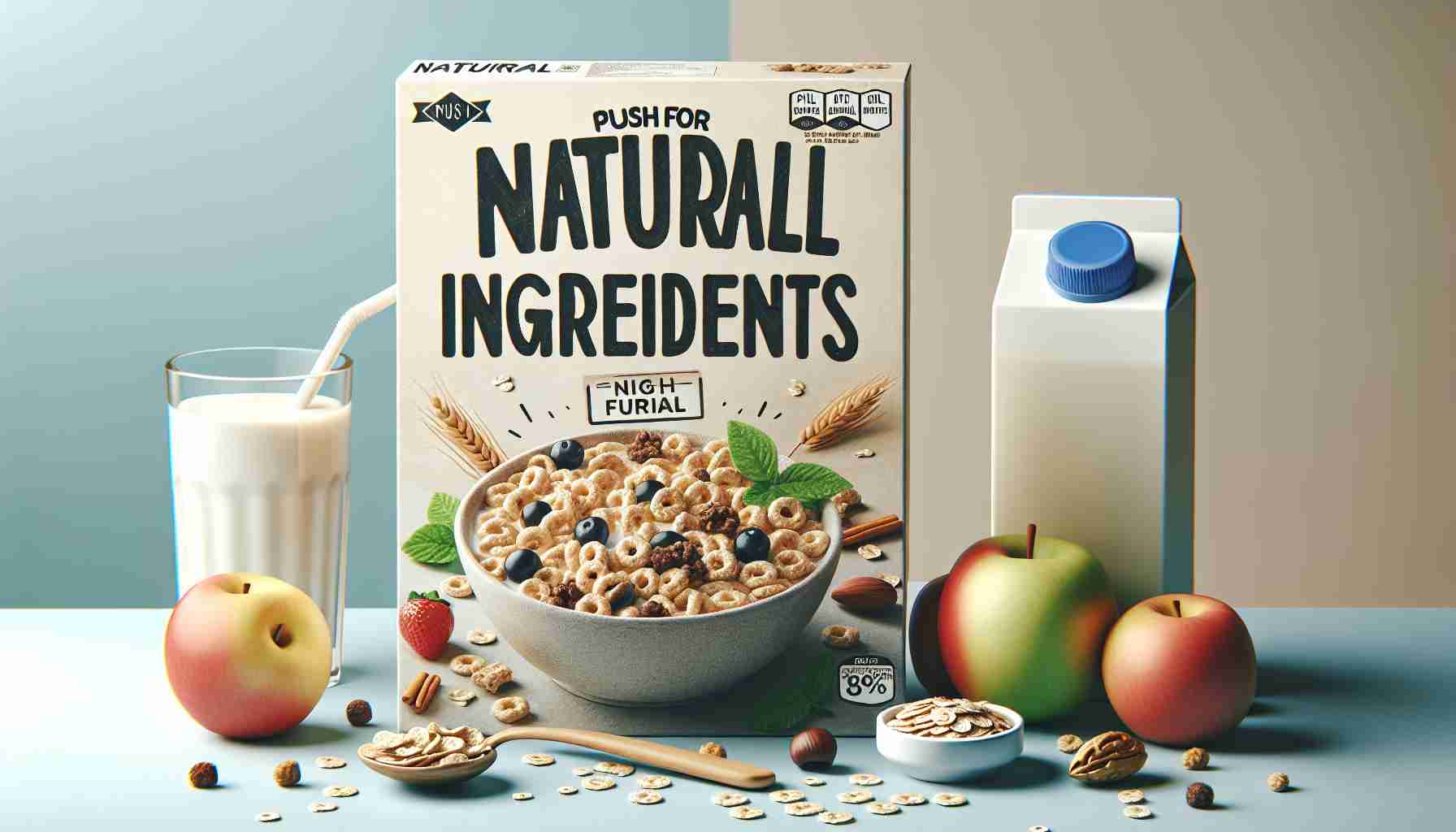In a significant demonstration outside their headquarters in Battle Creek, Michigan, numerous concerned consumers gathered to urge WK Kellogg Co. to eliminate artificial colorings from their breakfast cereals. Despite the company’s prior commitments, many of its popular products, including Froot Loops and Apple Jacks, continue to contain synthetic dyes and BHT, a preservative, in the U.S. market.
Activists presented a petition bearing over 400,000 signatures, citing research that links artificial dyes to potential behavioral issues in children. Vani Hari, a prominent food advocate, expressed solidarity with parents striving to provide healthier food options for their families, devoid of chemical additives.
While the U.S. Food and Drug Administration has investigated the effects of these color additives and found minimal adverse effects in most children, the public sentiment is shifting toward a preference for natural ingredients. WK Kellogg, which became a standalone entity in the past year, has already adopted natural dyes for its cereals sold in other countries, such as Canada.
On the same day as the protests, Kellogg reaffirmed its commitment to consumer safety, stating that more than 85% of its cereal sales are free from artificial colors. Nonetheless, changing consumer preferences, especially highlighted by recent legislative actions in California banning certain food dyes in public school meals, may prompt the company to reassess its ingredient policies in the U.S. marketplace.
Empowering Your Breakfast: Tips for a Healthier Start to Your Day
In light of the recent protests advocating for the removal of artificial colorings from breakfast cereals, many consumers are becoming increasingly aware of the ingredients in their food. Whether you’re directly affected by these changes or simply want to make healthier choices in your daily diet, here are some valuable tips, life hacks, and interesting facts to consider when choosing your breakfast options.
1. Read Labels: Know What You’re Eating
Before putting that box of cereal in your cart, take a moment to examine the ingredient list. Look out for artificial colors, preservatives like BHT, and other synthetic additives. Choosing products with short ingredient lists typically means they contain fewer chemicals and additives.
2. Opt for Natural Colorings
If you find yourself missing the vibrant colors often found in processed cereals, consider making your own at home. Use natural ingredients to add color, like beet juice for red or turmeric for yellow. This can make your breakfast healthier and fun to prepare with kids!
3. Explore Whole Grain Alternatives
Many cereals are loaded with sugars and artificial ingredients. Look for whole grain cereals that provide more fiber and essential nutrients without sacrificing taste. Whole grains can keep you feeling full longer and provide sustained energy throughout the day.
4. Create Homemade Granola
Instead of purchasing pre-packaged granola, which often contains added sugars and artificial ingredients, consider making your own. Mix oats, nuts, seeds, and a natural sweetener like honey or maple syrup, then bake until golden. You control the ingredients!
5. Incorporate Fresh Fruits
Boost the nutritional value of your breakfast by adding fresh fruits. Berries, bananas, and apples not only add natural sweetness but also provide fiber and vital vitamins. This is a great way to enhance the flavor and appearance of your morning meal without synthetic additives.
6. Educate Yourself on Food Additives
Understanding which additives can impact your health is crucial. Research shows that certain artificial dyes may be linked to behavioral issues in children, which is why many parents are advocating for cleaner, more natural food options. Staying informed helps you make better choices for yourself and your family.
7. Join the Movement
If you feel strongly about food additives and want to make your voice heard, consider joining consumer advocacy groups. Many organizations aim to promote transparency and healthier food options, allowing you to contribute to significant changes in the food industry.
Interesting Fact: Did you know that consumers in the U.S. are increasingly choosing natural over artificial colorings, prompting major companies like WK Kellogg to adapt their product formulations? This shift leads to more products entering the market that are both appealing and healthier.
For more insights on food choices and healthier living, you can explore the resources available at CDC or learn about nutrition at USDA. Adopting healthier breakfast habits not only benefits you but can also positively influence food manufacturers to prioritize consumer health.
